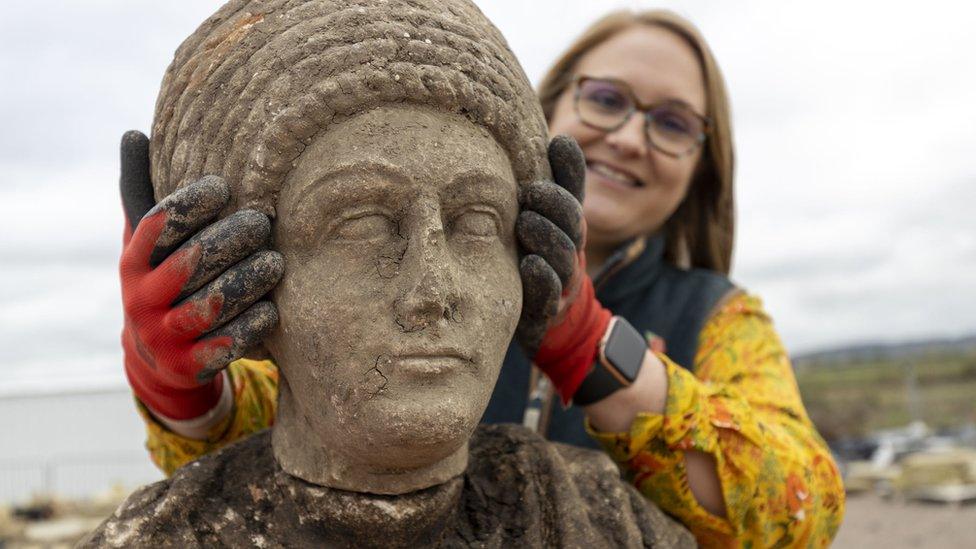Beverley: Archaeologists unearth suspected medieval pub in dig
- Published
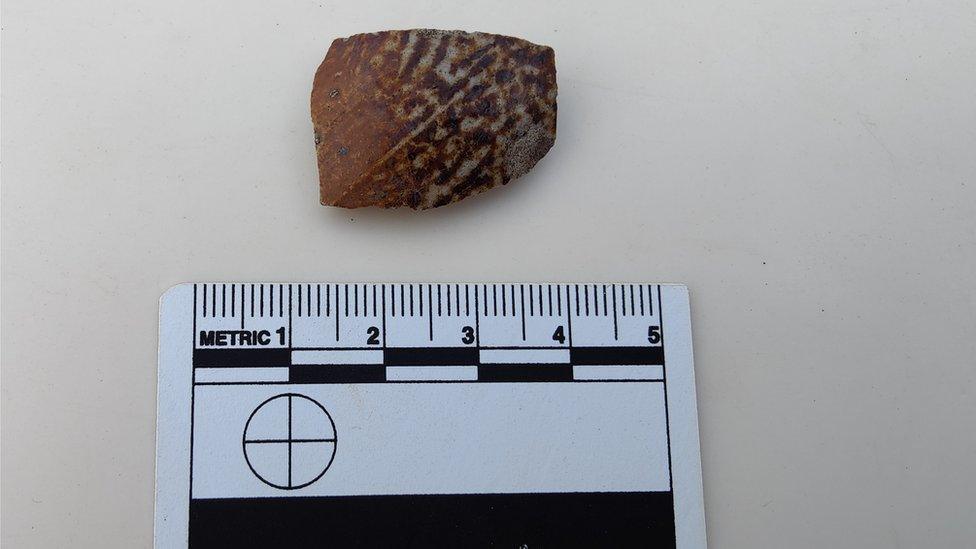
Part of a pottery drinking beaker discovered at the High Hunsley site
Archaeologists excavating a site in East Yorkshire say they may have stumbled on a medieval alehouse.
Volunteers have spent the past three weeks searching for the remains of a village at High Hunsley, near Beverley.
Assistant site director Emma Samuel said a large number of pottery beakers and jugs had been unearthed, suggesting a pub may once have served the village.
Also found were sheep and cattle bones, giving rise to an alternative theory there was a hostelry, said Ms Samuel.
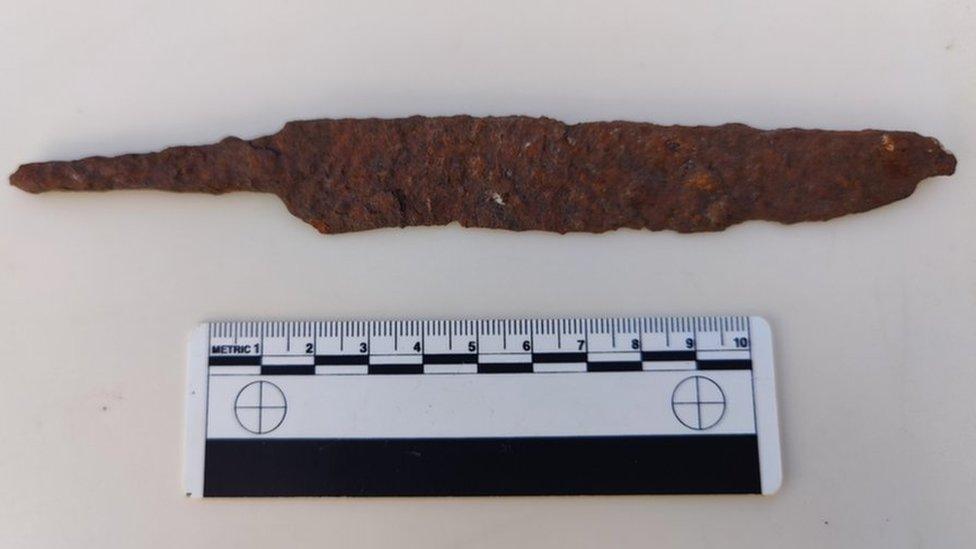
A knife believed to have been from either the 13th or 14th Century
She said: "From their design, we know the beakers date back to about the 13th Century. The site could well have been a pub or some kind of large house, perhaps even a hostelry.
"The bones, belonging to sheep and cows, were carefully butchered. Perhaps people gathered here to eat? There may well have been a hostelry here."
Ms Samuel said in medieval times it was dangerous to travel at night, so people on the move would seek out a place to stay.
"People would stop and rest," he said. "It was a myth that everyone owned horses back then. They didn't. Horses were expensive. People would often walk. People had to stay overnight somewhere when making long journeys."
The three-week "community dig" led by Humber Timelines and Ethos Heritage CIC also unearthed a knife, chisels and jewellery from between the 7th and 13th Centuries, including a clasp used to fasten a shirt, a hair pin and a copper brooch, thought to be of Celtic origin.
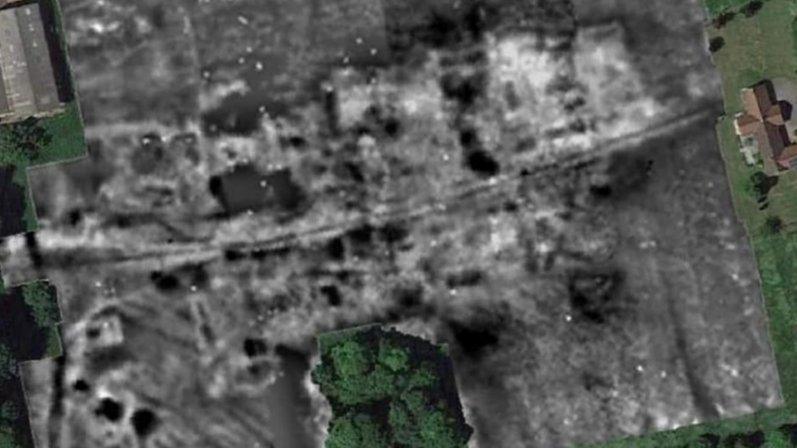
Geophysical surveys of the site show what appears to be buried houses
Prior to the dig, geophysical surveys of the site revealed more than a dozen stone structures, as well as a larger building, which may have been the pub or hostelry, the team believes.
Ms Samuel, a director at Ethos Heritage CIC, said she suspected the settlement probably had its origins rooted in the 7th Century, or even earlier, although further work was required to confirm this.
Teams plan to return to the site next year to resume excavations.

Follow BBC East Yorkshire and Lincolnshire on Facebook, external, Twitter, external, and Instagram, external. Send your story ideas to yorkslincs.news@bbc.co.uk, external.
Related topics
- Published22 June 2022

- Published11 January 2022
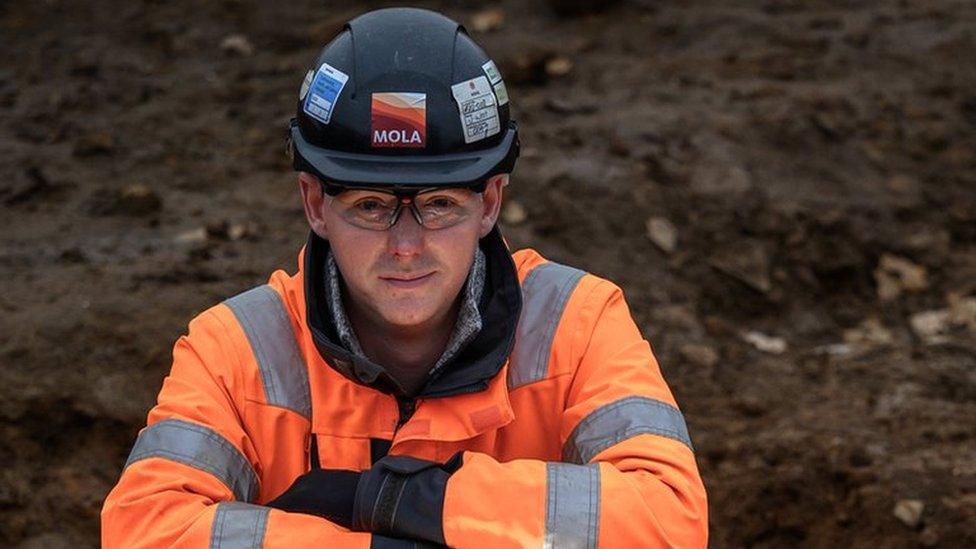
- Published29 October 2021
